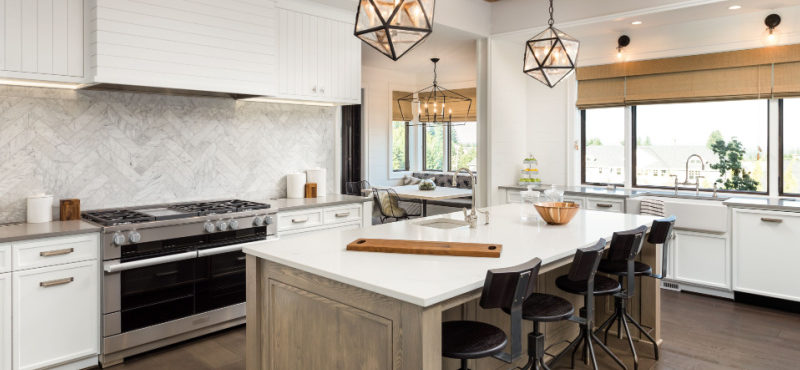Are you planning on remodeling your kitchen? Kitchen remodels involve numerous expenses, including cabinetry, appliances, countertops, flooring, lighting, plumbing, and more. It can be challenging to prioritize which elements are most important to you within your budget constraints.
While you may need to make trade-offs and compromises to stay within your financial limits, careful consideration of various factors such as materials, labor, permits, and unforeseen expenses can help you stay on track. Here are some steps to help you effectively budget for your kitchen remodel:
- Determine your goals
Start by identifying your remodeling goals. Do you want a complete overhaul or minor upgrades? Make a list of the changes you want to make and prioritize them based on your needs and budget. If needed, take advice from your friends, family, or someone who is experienced in this avenue.
- Research costs
Research the average costs associated with the components of a kitchen remodel, such as cabinets, countertops, appliances, flooring, lighting, plumbing, and labor. Obtain quotes from contractors and suppliers to get a better idea of the specific costs for your project.
- Set a budget range
Based on your research, establish a realistic budget range for your kitchen remodel. It’s helpful to have both a minimum and maximum budget to accommodate any unforeseen expenses or upgrades. To prevent scope creep, it’s important to establish a clear vision and scope for your project and stick to it.
- Prioritize your expenses
Decide which elements of your kitchen remodel are the most important to you. Allocate a higher portion of your budget to those areas while considering which areas can be scaled back if needed. During the remodeling process, unexpected expenses may arise. It’s essential to set aside a contingency fund to cover unforeseen expenses that may arise during the project.
Keep in mind that there may be additional costs beyond the main components of the remodel. This could include permits, design fees, demolition costs, disposal fees, and any structural changes that need to be made. It’s wise to set aside around 10-20% of your budget for unexpected expenses or changes that may arise during the remodeling process.
- Create a detailed plan
Work with a contractor or use design software to create a detailed plan for your kitchen remodel. This will help you visualize the layout and estimate costs more accurately. While doing some tasks yourself can save money, kitchen remodeling requires time, skills, and expertise. Assess your abilities realistically and consider hiring professionals for complex tasks to ensure quality workmanship.
- Seek multiple bids
If you plan to hire contractors or professionals for your remodel, obtain multiple bids to compare prices and services. Choose reputable and experienced professionals who can deliver quality work within your budget. Be sure to review testimonials and reviews of other customers before making your final decision.
- Explore cost-saving options
Look for ways to save money without compromising on quality. This could include opting for less expensive materials, considering pre-owned or discounted appliances, or repurposing existing items if they are in good condition. Your contractor can help you make informed decisions when cutting corners, so consider their advice before making the final call.
- Track expenses
Throughout the remodeling process, keep track of all expenses to ensure you stay within your budget. This will help you make adjustments if necessary and avoid overspending.
Work With Tops Kitchen Cabinets
Our team at Tops Kitchen Cabinet has led many kitchen remodeling projects to success with the help of our expertise and quality products. If you are looking for a professional and qualified team to help you build your dream kitchen, Tops Kitchen Cabinet can help. If you have any questions or want to learn more about our services, speak with a member of our team today!

